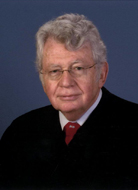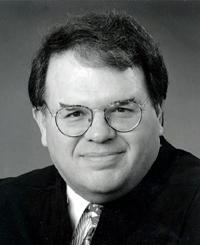 “Plaintiffs must realize that secrecy is yet another form of regulation, prescribing not ‘what the citizen may do’ but instead ‘what the citizen may know.’” US Appellate Court Judge Janice Rogers Brown
“Plaintiffs must realize that secrecy is yet another form of regulation, prescribing not ‘what the citizen may do’ but instead ‘what the citizen may know.’” US Appellate Court Judge Janice Rogers Brown
“…the public has no interest in saving the government from the burdens of complying with the Constitution.” US District Court Judge Richard Leon
Judge Leon Rules for American Freedom
In December, 2013, US District Court Judge Richard Leon, in the case of Klayman v. Obama[1], ruled that the National Security Agency’s data collection program was very likely unconstitutional and issued an injunction that limited the continuation of the program. Judge Leon’s opinion was both courageous and educational. He explained the history and intent of the Fourth Amendment. Judge Leon made clear that the bulk collection of American’s private phone records was contrary to the intent of the Fourth Amendment’s prohibition against “unreasonable” searches and seizures by the government.
Appellate Court Says Plaintiffs Have Not Proved Injury
On August 28, 2015, the U.S. Court of Appeals for the D.C. Circuit in its opinion said that since the plaintiffs’ phone service was provided by one subsidiary of Verizon—Verizon Wireless—rather than another—Verizon Business—they couldn’t prove that their constitutional rights were being violated. By a 2-1 vote the court sent the case back to Judge Leon to give the plaintiffs an opportunity to prove that their records were in fact collected. The most  dangerous note to American freedoms came from Appellate Judge David Sentelle, who voted to dismiss the case completely.
dangerous note to American freedoms came from Appellate Judge David Sentelle, who voted to dismiss the case completely.
The differing attitudes of the judges involved, and the danger to American citizens are summarized with the quotes above. Judge Brown clearly approves government regulation of citizen conduct and knowledge. Judge Leon emphasizes government compliance with the Constitution.
Case Not Over, But Plaintiffs Handicapped by State Secrets Doctrine
While the case is not over, and it was sent back to Judge Leon to allow the plaintiffs try to get more information from the government, the Appellate Court practically told the government to hide behind the “State Secrets Doctrine”. This court rule allows the government to claim that it does not have to turn over information related to its conduct because the information is classified. The courts generally approve of this regulation of what a “citizen may know”.
The appeals court did not rule one way or the other of the constitutionality of the mass collection program, but it created a situation in which the courts can avoid such a ruling. In the meantime, the mass collection of data continues.
The state of freedom of America is very precarious when a judicial ruling like Judge Leon’s upholding the Constitution is considered unusual and courageous rather than something to be expected.
____________________________________________________________________________________
[1] For plaintiff Larry Klayman’s view of the Appellate Court Decision, see NSA DECISION EXPLAINS TRUMP PHENOMENON.







[…] His opinion in Klayman v. Obama finds much of the National Security Agency’s (NSA) surveillance collection of “telephony metadata” [3]process unconstitutional. Judge Leon’s 68 page opinion rejects the conventional arguments the government makes for this program. [4] (On August 28, 2015, an appellate court sent this case back to Judge Leon. See: Appellate Court: Plaintiffs Offered No Proof NSA Violated Their Rights) […]